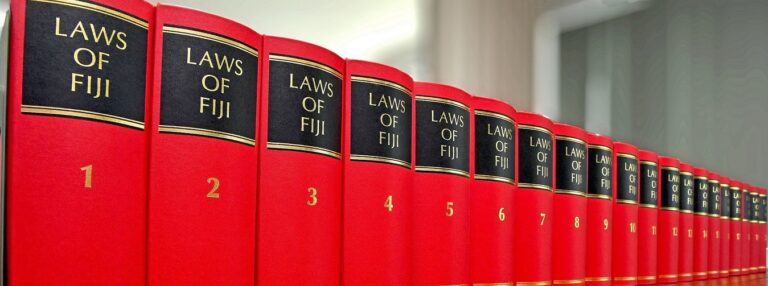Government Rules and Laws in Fiji
Fiji is a democratic republic governed by a constitution and operates under a parliamentary system. Its laws are influenced by British common law, customary law, and modern democratic principles.
Here’s an overview of key government rules, laws, and legal systems in Fiji:
1. The Constitution
- Adopted in 2013, it is the supreme law of Fiji.
- Guarantees human rights, freedom of expression, religion, and equality before the law.
- Establishes separation of powers between:
- Executive (President & Cabinet)
- Legislative (Parliament)
- Judiciary (Courts)
2. Structure of Government
| Branch | Role |
|---|---|
| President | Head of State (ceremonial role) |
| Prime Minister | Head of Government (executive power) |
| Parliament | Single-chamber legislature; makes laws |
| Judiciary | Independent; interprets and enforces laws |
3. Key Government Rules & Laws
Criminal & Civil Law
- Theft, assault, drug possession, and corruption are criminal offences.
- Civil law covers contracts, land disputes, marriage, and inheritance.
Age-Based Rules
- Legal adult age: 18
- Voting age: 18
- Alcohol and tobacco: Legal from age 18
Elections
- Held every 4 years
- Citizens vote for members of parliament under a proportional representation system
4. Law Enforcement
- Handled by the Fiji Police Force
- Laws apply equally to citizens and visitors
- Serious crimes like drug trafficking, assault, and fraud carry strict penalties
5. Social & Civic Rules
- Freedom of speech is protected but must not incite violence or hatred.
- Traditional chiefs still hold influence in rural and village life under customary law.
- Land ownership is protected—about 87% of land is native land, and cannot be sold, only leased.
6. Internet & Media Regulations
- Fiji has media laws requiring balanced and responsible journalism.
- Social media is monitored for hate speech and misinformation.
7. Courts and Justice System
- Court hierarchy: Magistrates’ Court → High Court → Court of Appeal → Supreme Court
- Includes Family Court, Small Claims Tribunal, and Employment Tribunal



